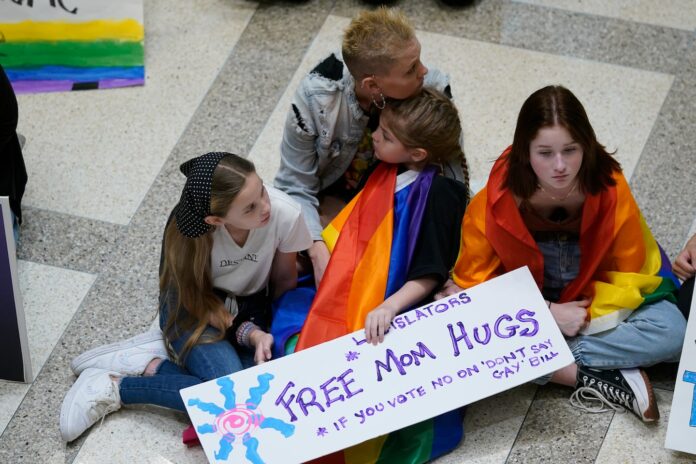
The Florida legislation is the most high-profile example of a multistate trend. At least 15 bills to restrict or penalize conversations about gender and sexual orientation are being considered in nine states, the free-speech organization PEN America reported last month.
A bill in Arizona would require permission from parents for a student to join any club “involving sexuality, gender or gender identity.” An effort in Tennessee would ban schools from using materials that “promote, normalize, support, or address … (LGBT) lifestyles or issues.” In Oklahoma, legislators are considering at least five separate bills that would restrict conversations about sexuality in educational settings, including a proposal to bar public school libraries from displaying books about “the study of sex, sexual preferences, sexual activity, sexual perversion, sex-based classifications, sexual identity, or gender identity or books that are of a sexual nature.”
There is no justifiable reason for any of these measures. They are all rooted in the anachronistic belief that discussions about gender and sexuality somehow endanger children. But for many LGBTQ kids, schools can be an important lifeline for information — and a source of comfort that they are not alone. In a recent survey, the Trevor Project found that 42 percent of LGBTQ youths seriously considered suicide in the past year. Eliminating mention of these topics will only isolate these children further and deprive students of a chance to learn about their identities and those of their peers.
Proponents of such bills routinely invoke the bogeyman of school systems infringing on “parental rights,” arguing that such conversations should be led by parents and families. Of course, parents have an important role to play, and educators should generally be mindful of parental concerns. These bills, however, are an intrusive attempt to restrict speech in schools. And just like efforts against the specter of critical race theory, they seek to expunge important truths about our history and world from classrooms.
President Biden has called Florida’s bill “hateful” and vowed to “fight for the protections and safety” of the LGBTQ community. Yet threats to their well-being are expanding: Texas Gov. Greg Abbott (R) has also directed his state agencies to investigate cases of gender-affirming care for transgender children as “child abuse.”
As damaging proposals emerge in more and more states, it’s children who will pay the price for Republicans’ cynical attempts to win votes by inflaming a small-minded and harmful culture war.








